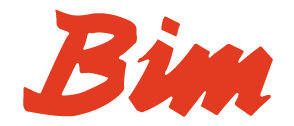We’d sit on the verandah, my Dad and I, and it wouldn’t be a dream. Either here in Barbados or in white plastic chairs by the front door in LaSalle. The way our neighbours the Zelenskis do in front their garage soon as the weather’s good, late spring into late fall if the earth holds enough heat. Sometimes, it’d be just Andrei, the youngest of three boys, and Mr Zelenski, almost ancient-looking from the years he smoked. We’d be a father and son, like them. Reasoning, but without any herb. Nothing like that was ever my Dad’s thing, far as I know.
We’d drink something soft. My Dad was never a hard-liquor man or even a beer drinker. It would have to be an occasion for us to drink wine. (This what-if scenario could be an occasion.) He’d have a ginger ale, or cream soda, I’d have an apple juice. Allen brand, like we bought when I was a kid. And we would watch the fields abutting the house, if in Barbados, notice how quiet they are you could hear cats cross in the tall, dry khus-khus. We’d dissect the street I grew up on, where he taught me to ride a bike and watched Paddy and Kelvyn play hockey and Sahara take her first steps. We’d sip and smile and watch the grey green street where only the Zelenskis are left of the first families to own homes here, whose lives we used to know and be a part of.
We’d talk about what it was like when he was a boy in Barbados. About Pappa, his old man, and Granny, his mother. Separately, never quite linking the two (they never married, still a tender issue for him decades on). Though both fell from his lips with care in the stories he told about the roving Synagogue Lane cobbler and the steady, folk-speaking homebody. We’d shake the ice in our drinks. Watch the glass sweat. Nod, nod.
We’d look up at the sky. Speculate about rain. Talk kitchen garden crops, backyard apples and the raspberry surrounding the pear. We’d count the squirrels high in the trees, maples to the left and the right of the house. Wonder which corns they had earmarked as their own. Laugh at the shredded stalks the squirrels had already left for us like detonated bombs or disassembled rifles, having hopped through a minefield of coloured plastic bags, our failed scarecrow tactics.
I’d ask him about things I hadn’t thought until that moment to ask him.
Were you really the only one from Montreal, out of all your brothers and sisters, to attend Pappa’s funeral? (That’s what Cynthie says.) Why didn’t you get along with Uncle Wadmel? (He was your eldest brother.) What were you sick with that you were measured for a coffin as a baby? (How could your wife not know?) And then the hot ones: Was my Mom the only woman you ever, ever had? Did you regret leaving Barbados, later on? How bad was the racism in Belleville or St Catherine Street in the 1950s?
And my Dad would listen. He may not be forthcoming with all the answers, but he’d listen. It seemed he was always listening. Even when he was giving advice. Even when he must have been impatient with us or his soul was embattled with the world, tired of it all. He was a hardworking father. He’d hear what I was saying and would say something back that made sense. That was the teacher in him. He was a quiet man. Quiet as the rainy-season field or summer street we’d be surveying. I’d ask him how to be calm. Or maybe I’d still take it all for granted. Not ask one thing. Because he would be here with me, alive and whole, and there’d be no reason to ask anything more.
